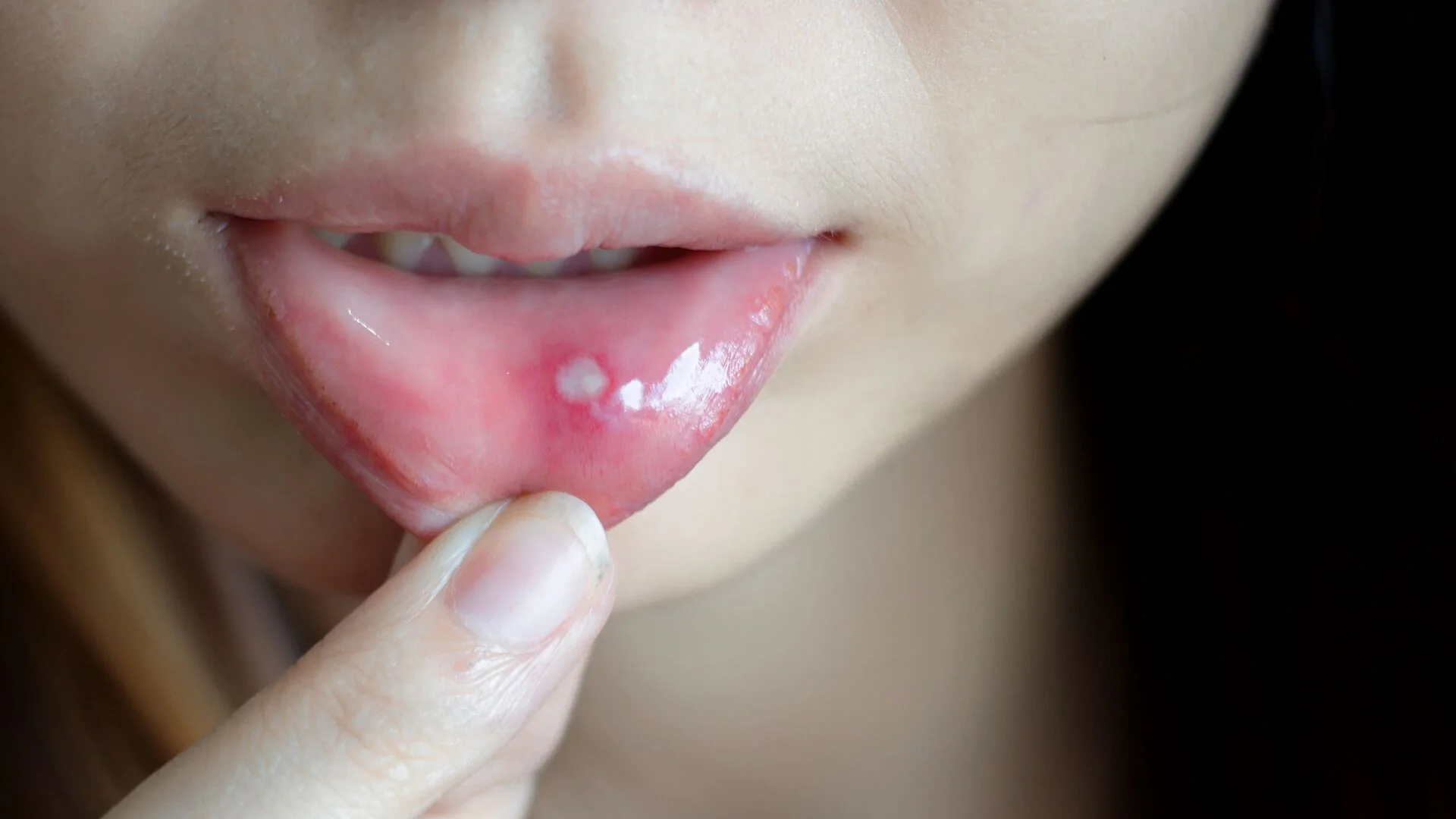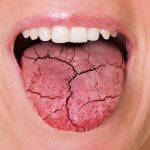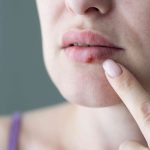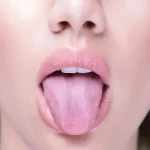
Key facts
- Mouth ulcers are a type of sore which appears on the inside of your mouth.
- No one knows what causes mouth ulcers, but there are a few factors that can make you more likely to get one. These include stress, hormonal changes and mouth injuries.
- Most mouth ulcers heal by themselves without treatment within a week or two.
- Numbing gels and saltwater mouth rinses can help relieve your pain and reduce your chance of infection.
- See your doctor if your mouth ulcers are very painful or if they keep coming back.
What are mouth ulcers?
Mouth ulcers, also known as aphthous ulcers or canker sores, are a type of sore that occurs on the inside of your mouth. They can feel uncomfortable, especially when you are talking, eating, drinking and brushing your teeth. In most cases, mouth ulcers are not dangerous and heal on their own. Around 1 in 5 people experience recurrent mouth ulcers.
What do mouth ulcers look like?
Mouth ulcers look like a shallow sore with a white/grey top and a red rim. They can occur as a single ulcer or in a cluster.
Mouth ulcers can appear in different locations around the mouth. Common locations include:
- inside the lips
- inside the cheeks
- on the bottom of the mouth or the gums
- on the tongue

What causes mouth ulcers?
No one knows the exact cause of mouth ulcers, but there are several factors that can make you more likely to develop them.
Mouth ulcers may be caused or triggered by:
- stress, anxiety or hormonal changes
- any injury or damage to the mouth, such as from sharp teeth, dentures, or braces
- a reaction to certain foods, drugs or toothpastes
- some infections and diseases, like coeliac disease
- certain medications and medical treatments
- vitamin deficiencies
About 1 in 3 people who get mouth ulcers have family members who also get them.
When should I see my doctor?
You should see your GP if you think you might have an ulcer related to a mouth infection or disease.
Most mouth ulcers will heal by themselves within a week or two. If your mouth ulcers last longer than this or they keep coming back, see your doctor, as they may be a sign of a more serious problem.
Also, see your GP if you or your child develops severe mouth ulcers with symptoms of general illness such as:
- weight loss, stomach pain, unexplained fevers
- mucus or blood in their stool (poo)
- neck stiffness and tiredness
- ulcers around the anus
This may indicate a health condition such as coeliac disease or inflammatory bowel disease.
How are mouth ulcers diagnosed?
Your doctor can usually diagnose a mouth ulcer by simply looking at it.
Your doctor may also ask you questions about your symptoms, diet, medical history and what medicines you regularly take.
If your doctor thinks that your mouth ulcer is infected, they may swab the ulcer to confirm an infection and help determine the right treatment.
How are mouth ulcers treated?
Most of the time, mouth ulcers heal on their own without treatment within a week. You can relieve any discomfort with a numbing anaesthetic mouth gel applied to the area, which you can buy over-the-counter from pharmacies.
If you are experiencing a lot of pain from your mouth ulcers, ask your doctor about other pain relief options.
The healthdirect Service Finder tool can help you find doctors, pharmacies, hospitals and other health services.
What can I do to look after myself if I have a mouth ulcer?
Here are some tips to look after yourself when you have a mouth ulcer:
- Try not to touch the sore area. Touching can disturb the healing process and can also spread an infection. If you do need to touch the area, make sure to wash your hands before and after.
- Use a soft toothbrush to clean your teeth. If your sores are so painful that you can’t brush your teeth, use a mouthwash containing chlorhexidine instead. This is available from most local pharmacies and some supermarkets. Avoid using mouthwashes that contain alcohol.
- Rinsing with salt water can help relieve pain and reduce the chance of infection. Make a saltwater rinse by mixing one teaspoon of salt into a cup of water. Take a mouthful of the liquid and hold it in your mouth so it covers the affected area for two minutes, then spit it out. Do not swallow it. Repeat this process 4 times a day.
- Eat soft foods.
- Avoid very hot or spicy foods and drinks. Drinking cool water can help to ease a painful mouth.
- If your mouth is very sore, try drinking through a straw.



